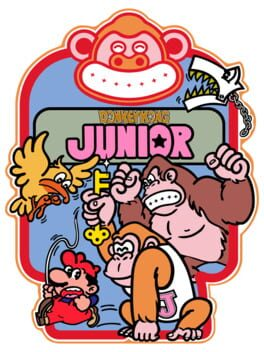subdirectory_arrow_right Donkey Kong (Game)
▲
2
▼
The development of the first Donkey Kong game was outsourced by Nintendo to Ikegami Tsushinki, a company who is believed but not confirmed to have previously worked with Nintendo on several of their early ventures into arcade games. They produced and sold to Nintendo somewhere between 8,000 and 20,000 printed circuit boards for Donkey Kong, and it is believed that Nintendo went on to copy an additional 80,000 boards from this batch without Ikegami's permission. Despite the sale, no formal contract was known to have been signed between the two companies, meaning Ikegami owned the source code to Donkey Kong as they had created it and never sent it over to Nintendo.
In order to create a sequel on the coattails of the success of the first game, Nintendo employed subcontractor Iwasaki Giken to reverse-engineer Donkey Kong so Nintendo’s staff could develop the game's sequel, Donkey Kong Jr. Should this narrative be verifiably true, this would make Donkey Kong Jr. Nintendo's first "in-house" video game created by themselves without any assistance from outside development companies. Ikegami viewed this use of the source code as blatant copyright infringement, and sued Nintendo in 1983 for ¥580,000,000 (around $91,935,800). A trial in 1990 ruled that Nintendo did not own the source code to the original Donkey Kong, and the parties settled out of court that year for an undisclosed amount.
In order to create a sequel on the coattails of the success of the first game, Nintendo employed subcontractor Iwasaki Giken to reverse-engineer Donkey Kong so Nintendo’s staff could develop the game's sequel, Donkey Kong Jr. Should this narrative be verifiably true, this would make Donkey Kong Jr. Nintendo's first "in-house" video game created by themselves without any assistance from outside development companies. Ikegami viewed this use of the source code as blatant copyright infringement, and sued Nintendo in 1983 for ¥580,000,000 (around $91,935,800). A trial in 1990 ruled that Nintendo did not own the source code to the original Donkey Kong, and the parties settled out of court that year for an undisclosed amount.
▲
1
▼
This game marks Mario's only appearance as the bad guy in a Nintendo game. Shigeru Miyamoto did this to show shades of grey in Mario and Donkey Kong, and also that not everything is as it seems.
Related Games
Donkey Kong Country
Donkey Kong: Bananza
Mario Bros.
Mario Bros.
Donkey Kong: Original Edition
Mario vs. Donkey Kong
Donkey Kong
Crazy Kong
Donkey Kong
Donkey Kong
Donkey Kong 3
Donkey Kong Plus
Donkey Kong: Coconut Crackers
Donkey Kong no Ongaku Asobi
Donkey Kong
Green House
Super Donkey
Donkey Kong 3: Dai Gyakushuu
Donkey Kong Circus
Donkey Kong 3
Donkey Kong
Skylanders: SuperChargers Racing
Super Mario Bros. Wonder
New Super Luigi U
Super Mario Bros.
Mario & Wario
Donkey Konga 2
Super Mario RPG
Super Mario Bros. / Duck Hunt / World Class Track Meet
Wrecking Crew
Mario & Sonic at the London 2012 Olympic Games
Super Mario Maker 2
Mini Mario & Friends: Amiibo Challenge
Mario Kart DS
Mario & Luigi: Paper Jam
Mario Party 4
Paper Mario: The Thousand-Year Door
Mario Golf: World Tour
Mario Kart 64
Super Smash Bros. Melee
Mario & Sonic at the Olympic Games Tokyo 2020
All Night Nippon Super Mario Bros.
Mario's Super Picross
Mario Golf: Toadstool Tour
Ultimate NES Remix
Fortune Street
Nintendo World Championships: NES Edition
Mario Party: Star Rush
Super Paper Mario
Donkey Kong Country 2: Diddy's Kong Quest
